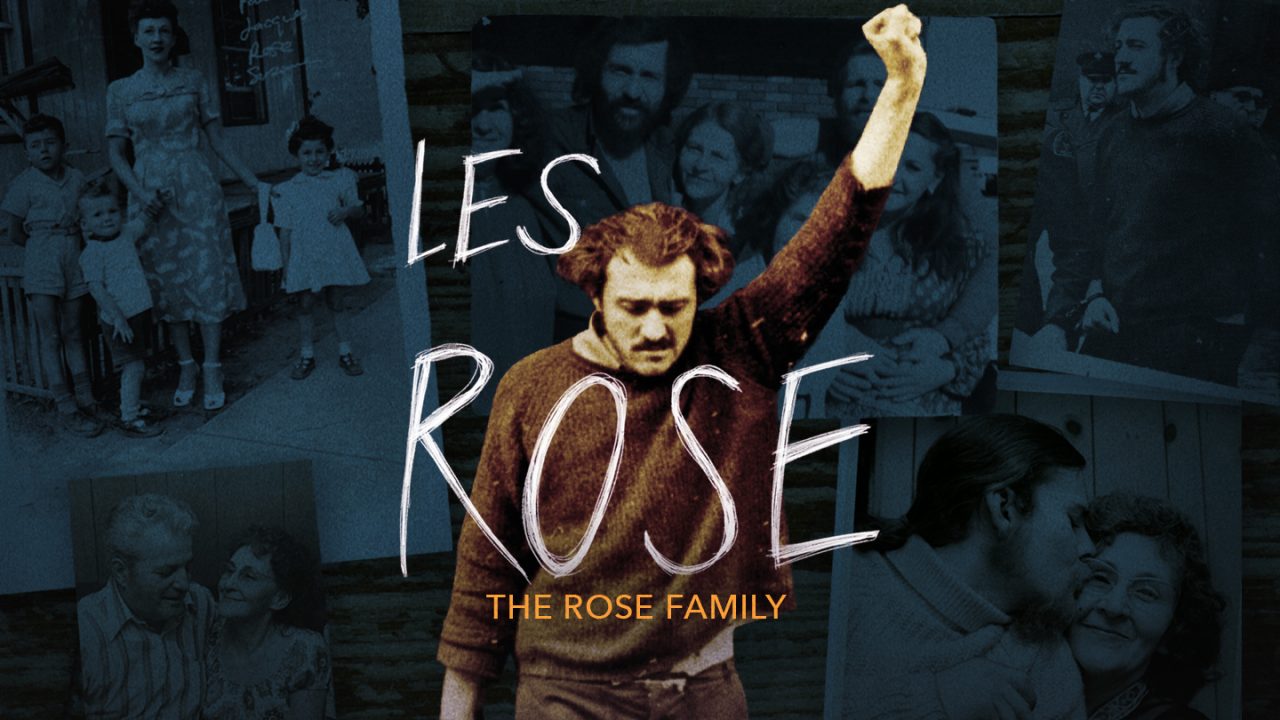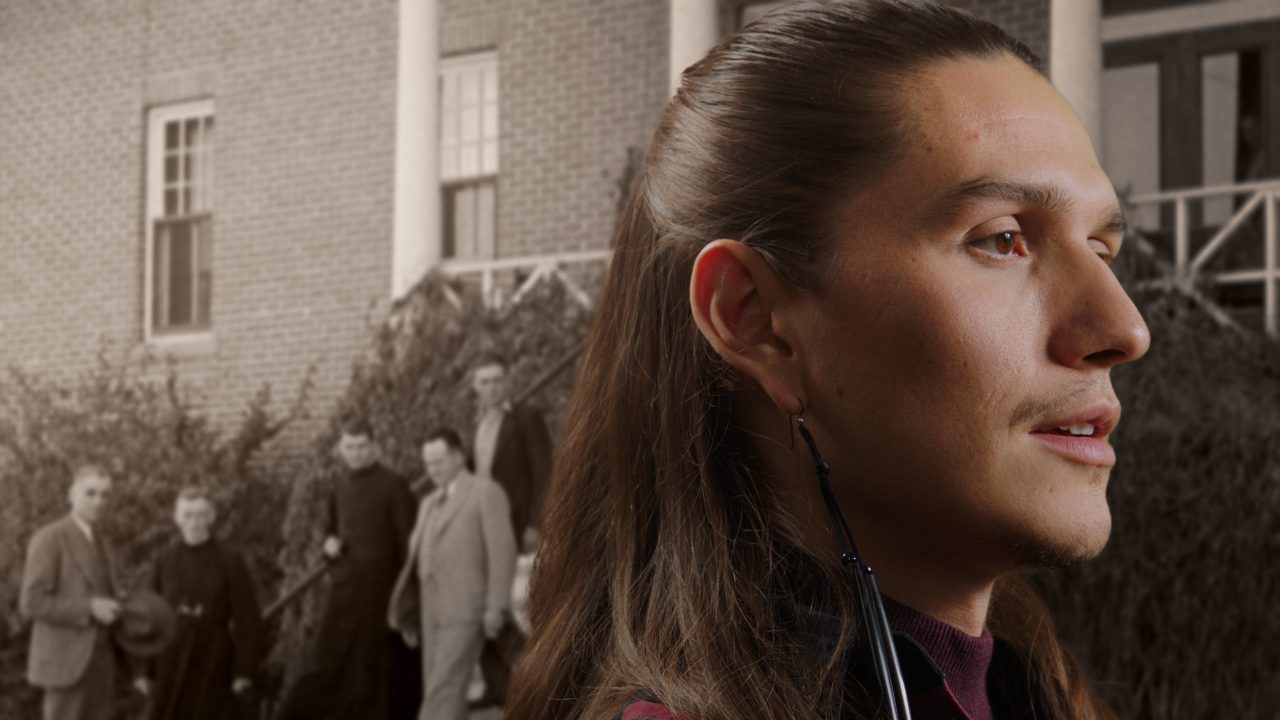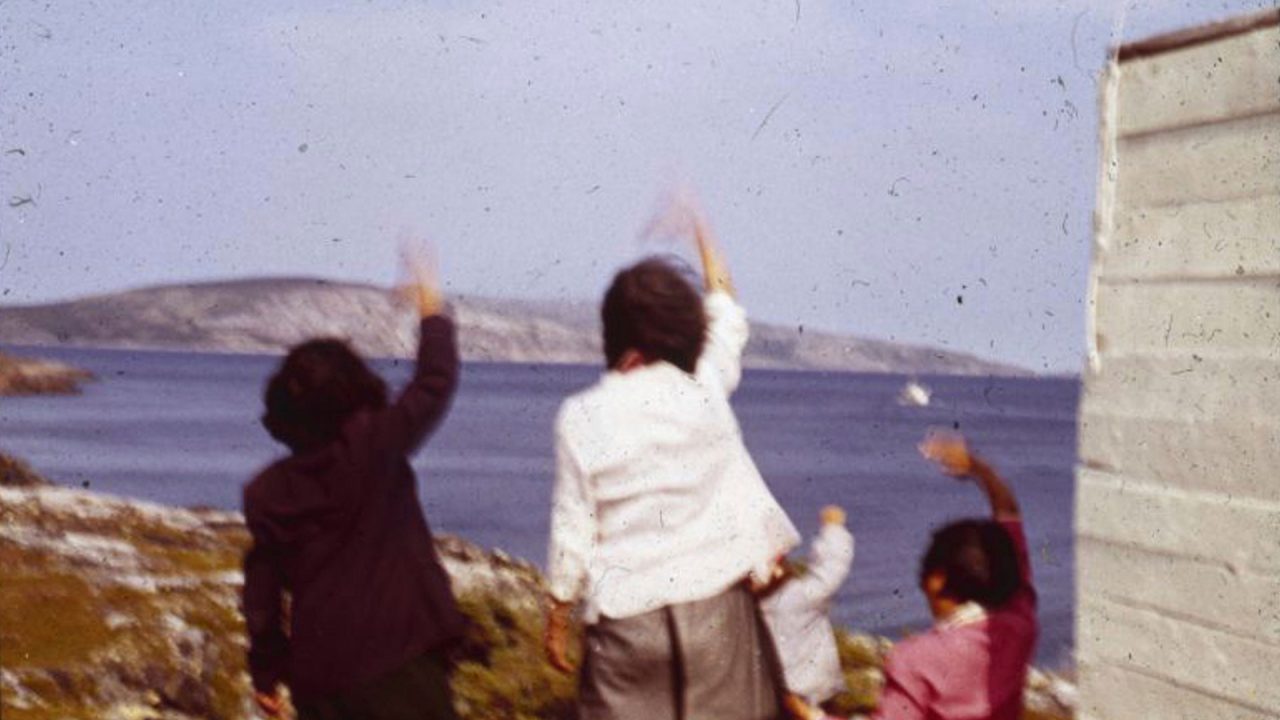
Mini-Lesson for The Rose Family
Mini-Lesson for The Rose Family
Mini-Lesson for The Rose Family
Themes:
- Contemporary Issues
- Identity, Social Justice
- History
- Law
- Civics
- Social Studies
- Justice
Ages: 15-17
The Rose Family, Félix Rose, provided by the National Film Board of Canada
Keywords/Topics: Social Consciousness, Law, History, Liberty, Politics, Ethics, Truth, October Crisis, Quiet Revolution, History of Quebec and Canada
Guiding Question: What insights does the documentary The Rose Family offer on the ideals of independence and social justice held by Paul Rose?
Educational Synopsis: One of the most interesting aspects of The Rose Family is the director’s close relationship with the documentary’s main subject. Paul Rose (1943–2013), a key architect of the historic events known today as the October Crisis, was found guilty of the kidnapping and murder of Quebec Labour Minister Pierre Laporte. Fifty years later, Rose’s son Félix, now a filmmaker, set out to unravel his complicated family legacy and put the events into context. What drove his father and uncle Jacques to join the Front de libération du Québec (FLQ) and what compelled them, together with Francis Simard and Bernard Lortie—two like-minded individuals they’d met at La Maison du pêcheur in Percé—to form the movement’s Chénier cell? The filmmaker pieces together the story through extensive interviews with the Rose family (including his uncle Jacques, seen here speaking on camera for the first time), intercut with archival materials. This mini-lesson casts new light on the social and political struggles unfolding in Quebec at the time and probes the inequality that existed in the lead-up to the crisis.
Warning: Sensitive subject matter
Activity 1: La Maison du pêcheur
Clip #1 (7 min 15s)
The youth activism in 1960s and 1970s Quebec was very much in keeping with the changes sweeping other parts of the planet. From the upheavals in France in May 1968 to the Kent State shootings in May 1970, revolution was in the air. In parallel, violent anti-colonial struggles were erupting in Africa, Asia and the Americas.
In Quebec, revolutionary nationalism was fast gaining ground with politicized young people on both sides of the language divide. The separatist movement, increasingly prominent and organized, provided the breeding ground for the social and political crisis that was to be led by a handful of young militants.
For a brief moment in the summer of 1969, the young people who came together at La Maison du pêcheur seemed to exist outside the mainstream, at odds with the world handed down to them by previous generations. Percé’s municipal authorities and shopkeepers were afraid of how the American tourists would view this cluster of “bohemians.” It was here that Paul Rose, who had travelled to Gaspé with his brother Jacques, would emerge as a leader; here, too, that the brothers would encounter Bernard Lortie and Francis Simard. Together, they would form the Chénier cell, the FLQ faction ultimately responsible for the kidnapping and death of Minister Laporte.
Activity Steps
- Ask your students to consider why young people were starting to “drop out” existentially, symbolically and socially.
- Invite students to draw a table specifying the social and political issues raised at La Maison du pêcheur.
- To complete the activity, have students share their thoughts with their classmates.
Summary
By the end of the activity, students should understand that the Rose brothers saw eye-to-eye with Lortie and Simard, not just in in terms of their critique of the prevailing social and political order, but also in their shared ideology and views on the means of resistance.
Activity 2: Analyzing a Cartoon by Raoul Hunter[1]
Clip #2 (1 min 52s)
In relation to Activity 1, have your students analyze the cartoon by Raoul Hunter featured in the clip. The cartoon sums up the power balance between the different groups in Percé at the time, using irony to comment on social and political contradictions. How does Hunter represent this historic moment in summer 1969?
Activity
- Have your students describe what they see without interpreting it. One idea would be to focus on the physical traits (dress styles, etc.) of the characters depicted and consider how lifestyle is represented through appearance. a) Who is in the cartoon and how are they represented? b) What do their various attitudes, postures and so on suggest? c) What contrast does the cartoon aim to underscore? d) What are the characters doing? e) Did the cartoon make the students laugh? What feelings does the drawing evoke?
- In a class discussion, have students interpret the cartoon and think about the encoded meanings of the characters, objects and/or setting. What do they symbolize? Does the cartoonist use exaggeration? What were his intentions? Why was the message published? What did Hunter think of the situation that existed well before October 1970? Could his message be seen as a form of political critique?
- Lastly, what conclusions should we draw from the cartoon? Challenge students to summarize their thoughts in a single sentence (roughly 20 words).
Summary
During the activity, the teacher highlights two conflicting realities: ’60s counterculture versus the Establishment. Hunter’s social and political critique contrasts two worlds of starkly differing values, principles and judgments, a mere few months before the murder of Pierre Laporte.
Activity 3: Analyzing the Re-enactment of Paul Rose’s Trial
Clip #3 (2 min)
While serving his life sentence for the kidnapping and murder of Minister of Labour and Manpower Pierre Laporte, Paul Rose re-enacted his trial on tape, unbeknownst to the prison authorities. At the time of his real trial, Rose’s lawyer, Robert Lemieux, had been abruptly detained under the War Measures Act; Rose had therefore chosen to represent himself in court. Finding jurors who were sufficiently impartial was an issue. Jury selection was limited to wealthy male property owners; women and the less privileged were excluded.
In his re-enactment, Rose underscores the social and political ideals he believed in right up until his death in 2013. Analyzing an audio clip from Rose’s theatrical project will prompt students to consider his revolutionary stance on the class struggle.
Activity
- Have students identify the social and political themes the clip refers to.
- Ask students to explain why Rose, as a key figure in the FLQ, saw his fictive (and real) trials as part of the struggle to liberate the people of Quebec.
- Do students believe that Rose would have had his “real” trial once the people of Quebec were emancipated?
Summary
To finish the activity, identify the social and political issues—for example, capitalism (the power of money), the imposition of law and order by the police and army (the use of force), the working class, British colonialism and the court, and democracy, revolution and independence—that were to fuel Paul Rose’s struggles until the end.
Take Action
At the beginning of the lesson, we asked what insights The Rose Family might offer on the ideals held by Paul Rose regarding independence and social justice in Quebec. We saw the desire to be part of a movement created to raise awareness of the province’s socioeconomic and political realities at the time. The video clips we watched reflected the desire to upend the social and political balance in 1970 and advance the cause of Quebec’s sovereignty.
Have students write an opinion paper on the following question: “After the failure of the independence referendums of 1980 and 1995, does the idea of Quebec sovereignty have the same degree of popular support today?”
[1] To find out more about Raoul Hunter (1926–2018), students can visit the artist’s website: http://www.raoulhunter.com/biographie.html. (Consulted on October 15, 2020)
Richard Têtu studied history before going on to specialize in ethics and education. He teaches ethics and religious culture at a high school in the Quebec City region. He also provides teacher training in professional ethics and lectures on ethics education at Université Laval. His personal pursuits include working with community organizations that fight racism, school segregation and poverty.
Pour lire cet article en français, cliquez ici.
Discover more Mini-Lessons | Watch educational films on NFB Education | Watch educational playlists on NFB Education | Follow NFB Education on Facebook | Follow NFB Education on Pinterest | Subscribe to the NFB Education Newsletter



